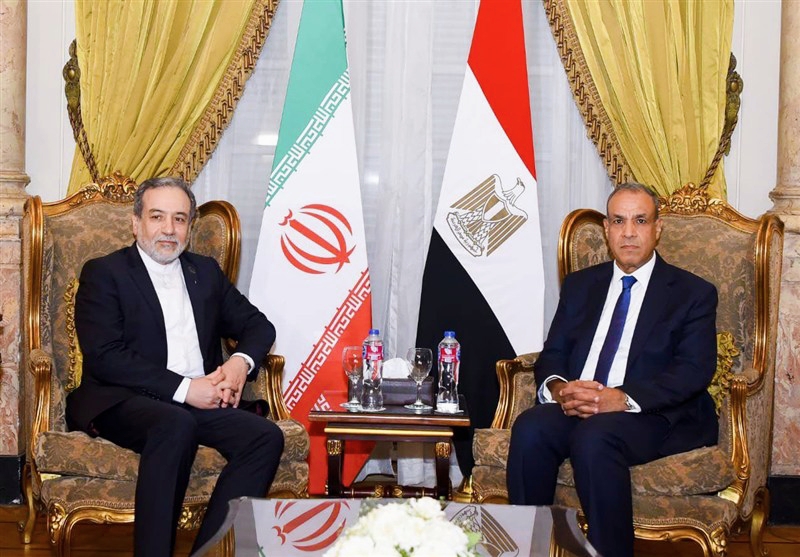The Foreign Ministers of Egypt and Iran Discuss Nuclear File Settlement Before Grossi's Meeting in Cairo
September 9, 2025109 ViewsRead Time: 2 minutes

Font Size:
16
In an important diplomatic step, Egyptian Foreign Minister Badr Abdel Atti met today, Tuesday, in Cairo, with his Iranian counterpart Abbas Araghchi, in talks aimed at enhancing bilateral relations and developing cooperation between the two countries, amidst sensitive files focusing on the Iranian nuclear file and the regional situation.
Abdel Atti emphasized during the meeting the necessity of continuing joint efforts to create conditions that lead to a satisfactory and sustainable settlement between Iran and the International Atomic Energy Agency, contributing to achieving de-escalation and restoring trust, and creating a supportive climate for achieving security and stability in the region.
Both sides stressed the importance of continuing consultation and coordination between Egypt and Iran on various issues of mutual interest, especially enhancing economic, commercial, and tourism cooperation, in a way that serves the interests of both countries.
The two ministers also discussed the latest regional developments, foremost of which is the situation in Gaza, where Abdel Atti affirmed the necessity of stopping the Israeli aggression, allowing humanitarian aid to reach, and rejecting the displacement of Palestinians from their lands.
This meeting comes ahead of the anticipated meeting between Abbas Araghchi and the Director General of the International Atomic Energy Agency Rafael Grossi, which is scheduled to be held in Cairo in the coming days, in an attempt to conclude negotiations on a new cooperation protocol between Iran and the agency, after Tehran suspended its cooperation with the agency since last July.
Grossi recently warned of running out of time to fully resume inspection operations in Iran, expressing hope for reaching an agreement in the coming days, while Iranian spokesman Ismail Baqaei announced that the talks remain positive despite not yet reaching a final outcome.
It is noteworthy that the suspension of cooperation between Iran and the International Atomic Energy Agency came against the backdrop of the war that Israel began on June 13, which included bombing Iranian nuclear and military facilities, resulting in more than a thousand deaths. In response, both France, Britain, and Germany activated the "snapback mechanism" at the end of August to re-impose United Nations sanctions on Iran under the 2015 nuclear agreement.